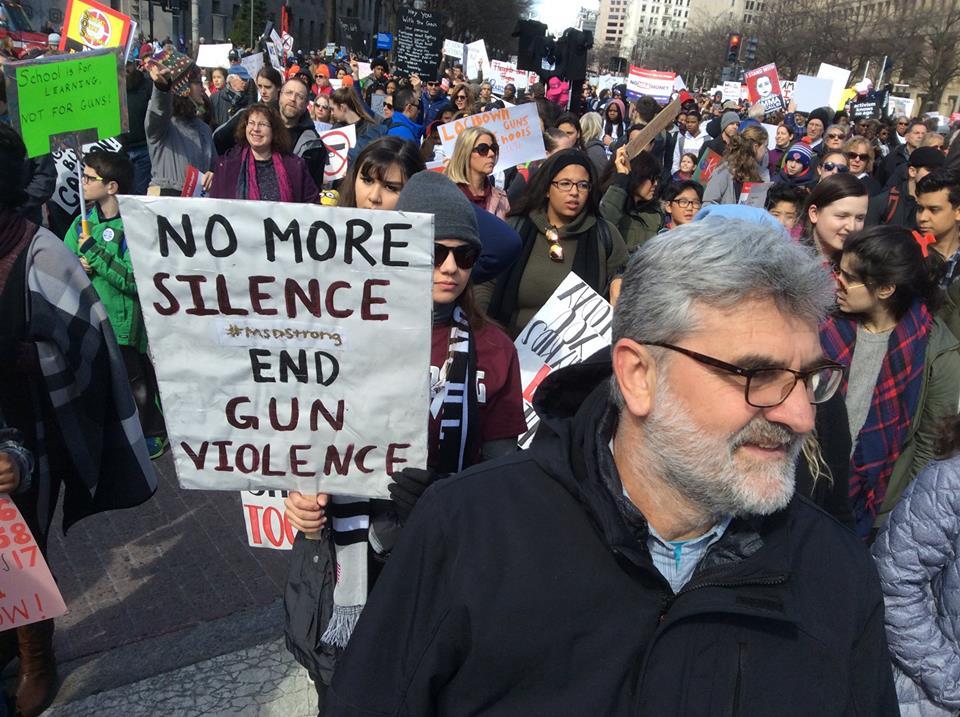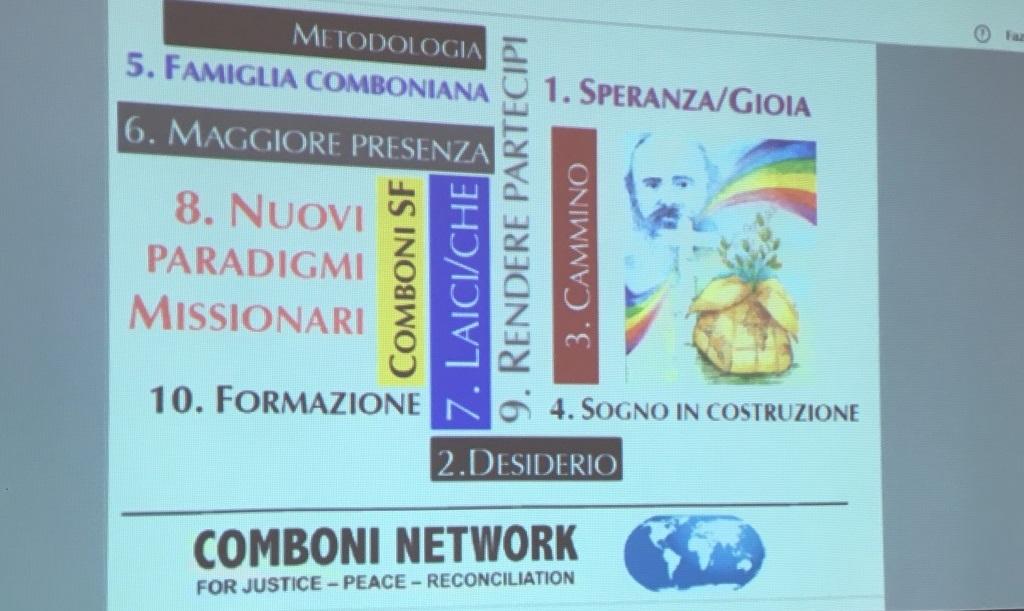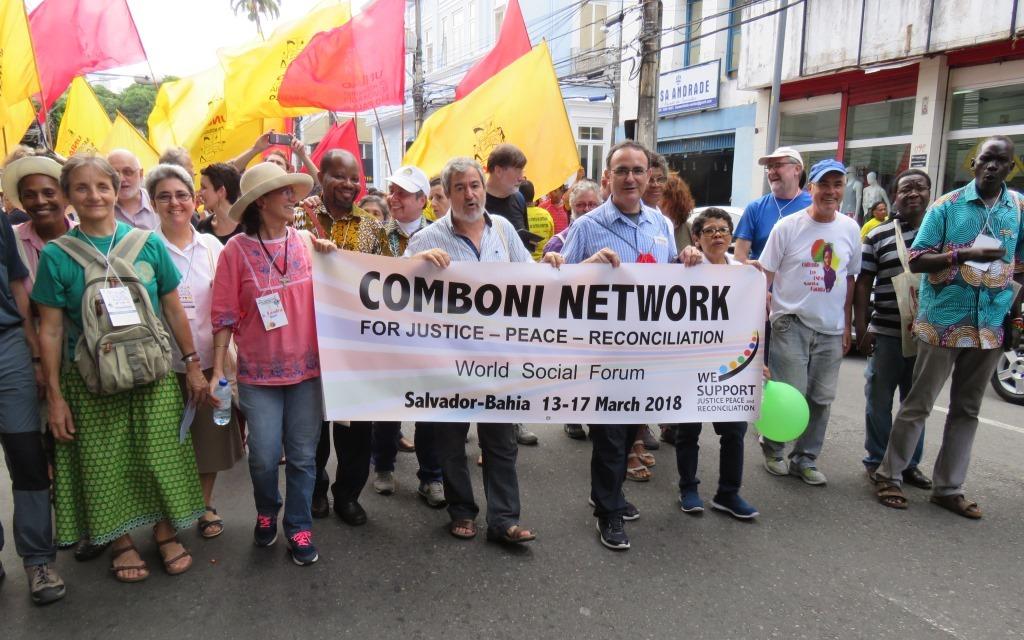Daniel Comboni
Comboni Missionaries
Institutional area
Other links
Newsletter
We share with you a reflection on the frontiers of the missionary engagement in favour of the environment. We intend to offer these points of reflection to all Comboni communities and to those who care for our charsim.
This reflection can help to prepare for the coming World Social Forum (January 2009, Belén, Brasil)to which we intend to invite several members of the Comboni Family.
Mission and environment: what’s Combonians’ opinion?
In several occasions, even unintentionally, the Church is ‘bound’ to theologize by virtue of its missionary meeting with the world (Bosch).
The same happens to our missionary communities spread at the borders of the world (but ready to think and get together in search for common aims): the challenges and discrepancies are so great that demolish the old models of mission and force us to look for new paradigms, provided we are really interested in finding answers to nowadays hunger of life.
The same Bosch recognizes that new models of mission are still at a planning stage inside the Church, in a time of deep crisis. Ivan Illich considers the mission as the face of a transforming Church, as wonder and mistery. A Church intended as the Word pronounced in situations on the fringe.
Being on the fringe is precisely the most precious trait for us, the missionaries; it’s our risk and our opportunity. It’s the limit beyond which we can get lost... but it’s also the border where you meet the others’ truth. In our poor missionary Latin we try to reinterpret the expression ‘ab intra ad extra’ – today the need is to come out of ourselves to be able to meet the other. As missionaries our basic choice should be ‘to live on that border’, to plant our tents on the border, on the fringe. From that observation and action post, ours becomes necessarily an ecumenical life, as Bosch says. And ecological, too, we could add.
In actual fact, ecology also appears as a new paradigm to interpret the world: not simply by studying our common house, but the ‘science of relationships’, too. Leonardo Boff redeems the hermeneutic newness of quantum physics according which all is structured in continously interactive energy fields. In every moment everything always stays together and communicates. Ecology tries to interpret the connectedness between all the things.
Being men and women living on the border, it’s firstly up to us, the missionaries, to redeem the sacred value of this network of relationships: after all, the Aparecida Conference taught us to translate John’s verse 10,10 into a more inclusive way: “I have come so that everything may have life and have it to the full!”.
But how can we put this new ecological paradigm into practice in real terms, inside our small missionary communities? This is an open question and requires everyone’s contribution. To carry on this path, we’re drawing here three directions...
Ecological spirituality
Many of our vocations may have their roots in the Book of Exodus key-verse (3,7): “I have heard them crying for help on account of their taskmasters. Yes, I am well aware of their sufferings. And I have come down to rescue them.” Our missionary choices had been and have being steered by this crying, a desire for introducing and freeing.
But today, as much as by their loud crying are we distressed by the deafening silence of the no longer life. Entirely wrecked environments, broken life balances, single cultural deserts instead of ecosystems that are well integrated with small producers’ work, mining plans that suck up the bowels of the Earth and those of the people living there...
The weakest link in a chain is the first to be crushed and when its victim has no voice, it doesn’t seem so critical and violent at all. The environment undergoes this discrimination without being able to raise its voice (or it does all at once with natural calamities).
That’s why completing the Exodus verse becomes necessary: “I have heard an alarming, unnatural silence. And I’ve come down to give the wounded Earth back its voice and life.”
Ivoni Richter Reimer retrievs the suggesting passage in Romans 8 in the New Creation great Biblical dream. Our duty of a re-creation process is actually a new gestation with its labour pains: it’s necessarily required a permanent work to free the creation from the chains of wild development, disrespectful profits, and boundless consuming.
The nature is groaning and suffering while waiting for this new labour. Those who have a missionary spirit are suffering along. And while it keeps blowing on today’s huge confusion and violence, God’s Spirit Himself is suffering with us, in the deep desire for new heavens and a new Earth.
By interpreting Teilhard de Chardin’s thought, Boff encourages us to a transparency spirituality, dia-phaneity of God in every thing. “In every least manifestation of the being, in every movement, in every expression of life do we come face to face with the in-process universe.” Those who pray, live and suffer while searching for a new earth end up identifying with it and feeling deeply part of it. “For centuries we had been thoughtful about the Earth. Today it is important to think like the Earth, to feel like the Earth, to love like the Earth.
Action methodologies
Like all our other working fields, our missionary-ecological action requires a serious action methodology which prevents from falling off into improvisation, dispersal or being simply good-natured. This methodology is contextualized in each different working areas and can be enriched by sharing it with our communities spread all over the world.
The ecological paradigm we accept to undertake shows us how complex the relashionships and interconnections of elements are. Generally, we need to make three remarks at least:
- We can no longer face an ecological challenge if we separate it from the social, cultural and also religious context it finds into. A different vision of the world is at issue and it requires a conversion, new attitudes and aims in our eyes and a new practice by every person, church and society.
- Equally, we cannot work on ecological problems if we leave out the strong bond that they have with the current economical-financial structure resulting from precise political choices. All the projects aiming at defending the environment need to be supported by a structured and acknowledged network of groups and movements, that are able to put pression on economical and political local and corporative structures, thus steering part of their choices and priorities. It’s the hidden and persistent work of lobbies and advocacies.
- In our missionary practice we have to constantly combine the environment issues with the protection of the outcasts’ life: separating those that are the two consequences of the same corrupted development model simply does not make sense. Our task is also to promote actions aimed at improving the environment, but those actions should be originated by the most outside and left out segments of society: we still believe the freeing process develops from down upwards.
Paradigmatic communities
Our missionary force is limited. Our political influence alone isn’t enough to put the right pressure on and bring about straight changes of the actual facts. On the other hand, it doesn’t make sense that we, the missionaries, build and hold considerable works to prove that “another world is possible.”
So what’s our role? A prophetic presence able to deeply penetrate the reality and, together with the people, to show which path to take. An aware missionary community that is well integrated in the reality can catalyse the changes made by the local people itself.
The environmental challenge requires the existence of paradigmatic communities that are placed in “crying” contexts and become the voice of the Earth and of the people: research and reporting centres, places to seek for alternatives and to organize rights. Such communities avoid isolated and self-regarding works; they aren’t under the illusion of solving all the problems, but are persistent in stressing the method, joining forces and teaching people a complex and multidimensional action.
Let’s denounce and announce, spreading the voice all over, taking wisely advantage of technology and media. Those communities make a little corner of reality visible to many people, offer their local experience as a possible method of action in other contexts too, and are ready to cooperate with all the allies that would tackle equal challenges.
Then I say a new heaven and a new earth; the first heaven and the first earth had disappeared now, and there was no longer any sea.
I saw the holy city, the new Jerusalem, coming down ot of heaven from God, prepared as a bride dressed for her husband.
Then I heard a loud voice call from the throne, ‘ Look, here God lives among human beings! He will make his home among them; they will be his people and he will be their God, God-with-them. He will wipe away all tears from their eyes; there will be no more death, and no more mourning or sadness or pain. The world of the pas has gone.”
The the One sitting on the throne spoke. “Look, I am making the whole of creation new.”
(Rv 21-1,5)
In several occasions, even unintentionally, the Church is ‘bound’ to theologize by virtue of its missionary meeting with the world (Bosch).
The same happens to our missionary communities spread at the borders of the world (but ready to think and get together in search for common aims): the challenges and discrepancies are so great that demolish the old models of mission and force us to look for new paradigms, provided we are really interested in finding answers to nowadays hunger of life.
The same Bosch recognizes that new models of mission are still at a planning stage inside the Church, in a time of deep crisis. Ivan Illich considers the mission as the face of a transforming Church, as wonder and mistery. A Church intended as the Word pronounced in situations on the fringe.
Being on the fringe is precisely the most precious trait for us, the missionaries; it’s our risk and our opportunity. It’s the limit beyond which we can get lost... but it’s also the border where you meet the others’ truth. In our poor missionary Latin we try to reinterpret the expression ‘ab intra ad extra’ – today the need is to come out of ourselves to be able to meet the other. As missionaries our basic choice should be ‘to live on that border’, to plant our tents on the border, on the fringe. From that observation and action post, ours becomes necessarily an ecumenical life, as Bosch says. And ecological, too, we could add.
In actual fact, ecology also appears as a new paradigm to interpret the world: not simply by studying our common house, but the ‘science of relationships’, too. Leonardo Boff redeems the hermeneutic newness of quantum physics according which all is structured in continously interactive energy fields. In every moment everything always stays together and communicates. Ecology tries to interpret the connectedness between all the things.
Being men and women living on the border, it’s firstly up to us, the missionaries, to redeem the sacred value of this network of relationships: after all, the Aparecida Conference taught us to translate John’s verse 10,10 into a more inclusive way: “I have come so that everything may have life and have it to the full!”.
But how can we put this new ecological paradigm into practice in real terms, inside our small missionary communities? This is an open question and requires everyone’s contribution. To carry on this path, we’re drawing here three directions...
Ecological spirituality
Many of our vocations may have their roots in the Book of Exodus key-verse (3,7): “I have heard them crying for help on account of their taskmasters. Yes, I am well aware of their sufferings. And I have come down to rescue them.” Our missionary choices had been and have being steered by this crying, a desire for introducing and freeing.
But today, as much as by their loud crying are we distressed by the deafening silence of the no longer life. Entirely wrecked environments, broken life balances, single cultural deserts instead of ecosystems that are well integrated with small producers’ work, mining plans that suck up the bowels of the Earth and those of the people living there...
The weakest link in a chain is the first to be crushed and when its victim has no voice, it doesn’t seem so critical and violent at all. The environment undergoes this discrimination without being able to raise its voice (or it does all at once with natural calamities).
That’s why completing the Exodus verse becomes necessary: “I have heard an alarming, unnatural silence. And I’ve come down to give the wounded Earth back its voice and life.”
Ivoni Richter Reimer retrievs the suggesting passage in Romans 8 in the New Creation great Biblical dream. Our duty of a re-creation process is actually a new gestation with its labour pains: it’s necessarily required a permanent work to free the creation from the chains of wild development, disrespectful profits, and boundless consuming.
The nature is groaning and suffering while waiting for this new labour. Those who have a missionary spirit are suffering along. And while it keeps blowing on today’s huge confusion and violence, God’s Spirit Himself is suffering with us, in the deep desire for new heavens and a new Earth.
By interpreting Teilhard de Chardin’s thought, Boff encourages us to a transparency spirituality, dia-phaneity of God in every thing. “In every least manifestation of the being, in every movement, in every expression of life do we come face to face with the in-process universe.” Those who pray, live and suffer while searching for a new earth end up identifying with it and feeling deeply part of it. “For centuries we had been thoughtful about the Earth. Today it is important to think like the Earth, to feel like the Earth, to love like the Earth.
Action methodologies
Like all our other working fields, our missionary-ecological action requires a serious action methodology which prevents from falling off into improvisation, dispersal or being simply good-natured. This methodology is contextualized in each different working areas and can be enriched by sharing it with our communities spread all over the world.
The ecological paradigm we accept to undertake shows us how complex the relashionships and interconnections of elements are. Generally, we need to make three remarks at least:
- We can no longer face an ecological challenge if we separate it from the social, cultural and also religious context it finds into. A different vision of the world is at issue and it requires a conversion, new attitudes and aims in our eyes and a new practice by every person, church and society.
- Equally, we cannot work on ecological problems if we leave out the strong bond that they have with the current economical-financial structure resulting from precise political choices. All the projects aiming at defending the environment need to be supported by a structured and acknowledged network of groups and movements, that are able to put pression on economical and political local and corporative structures, thus steering part of their choices and priorities. It’s the hidden and persistent work of lobbies and advocacies.
- In our missionary practice we have to constantly combine the environment issues with the protection of the outcasts’ life: separating those that are the two consequences of the same corrupted development model simply does not make sense. Our task is also to promote actions aimed at improving the environment, but those actions should be originated by the most outside and left out segments of society: we still believe the freeing process develops from down upwards.
Paradigmatic communities
Our missionary force is limited. Our political influence alone isn’t enough to put the right pressure on and bring about straight changes of the actual facts. On the other hand, it doesn’t make sense that we, the missionaries, build and hold considerable works to prove that “another world is possible.”
So what’s our role? A prophetic presence able to deeply penetrate the reality and, together with the people, to show which path to take. An aware missionary community that is well integrated in the reality can catalyse the changes made by the local people itself.
The environmental challenge requires the existence of paradigmatic communities that are placed in “crying” contexts and become the voice of the Earth and of the people: research and reporting centres, places to seek for alternatives and to organize rights. Such communities avoid isolated and self-regarding works; they aren’t under the illusion of solving all the problems, but are persistent in stressing the method, joining forces and teaching people a complex and multidimensional action.
Let’s denounce and announce, spreading the voice all over, taking wisely advantage of technology and media. Those communities make a little corner of reality visible to many people, offer their local experience as a possible method of action in other contexts too, and are ready to cooperate with all the allies that would tackle equal challenges.
Then I say a new heaven and a new earth; the first heaven and the first earth had disappeared now, and there was no longer any sea.
I saw the holy city, the new Jerusalem, coming down ot of heaven from God, prepared as a bride dressed for her husband.
Then I heard a loud voice call from the throne, ‘ Look, here God lives among human beings! He will make his home among them; they will be his people and he will be their God, God-with-them. He will wipe away all tears from their eyes; there will be no more death, and no more mourning or sadness or pain. The world of the pas has gone.”
The the One sitting on the throne spoke. “Look, I am making the whole of creation new.”
(Rv 21-1,5)




